- Home
- William Shakespeare
Much Ado About Nothing (Arden Shakespeare: Third Series) Page 2
Much Ado About Nothing (Arden Shakespeare: Third Series) Read online
Page 2
The anti-Stratfordians, in addition to assuming that the author must have been a man of rank and a university man, usually assume two conspiracies: (1) a conspiracy in Elizabethan and Jacobean times, in which a surprisingly large number of persons connected with the theater knew that the actor Shakespeare did not write the plays attributed to him but for some reason or other pretended that he did; (2) a conspiracy of today's Stratfordians, the professors who teach Shakespeare in the colleges and universities, who are said to have a vested interest in preserving Shakespeare as the author of the plays they teach. In fact, (1) it is inconceivable that the secret of Shakespeare's non-authorship could have been preserved by all of the people who supposedly were in on the conspiracy, and (2) academic fame awaits any scholar today who can disprove Shakespeare's authorship.
The Stratfordian case is convincing not only because hundreds or even thousands of anti-Stratford arguments--of the sort that say "ever I was born" has the secret double meaning "E. Ver, I was born"--add up to nothing at all but also because irrefutable evidence connects the man from Stratford with the London theater and with the authorship of particular plays. The anti-Stratfordians do not seem to understand that it is not enough to dismiss the Stratford case by saying that a fellow from the provinces simply couldn't have written the plays. Nor do they understand that it is not enough to dismiss all of the evidence connecting Shakespeare with the plays by asserting that it is perjured.
The Shakespeare Canon
We return to William Shakespeare. Thirty-seven plays as well as some nondramatic poems are generally held to constitute the Shakespeare canon, the body of authentic works. The exact dates of composition of most of the works are highly uncertain, but evidence of a starting point and/or of a final limiting point often provides a framework for informed guessing. For example, Richard II cannot be earlier than 1595, the publication date of some material to which it is indebted; The Merchant of Venice cannot be later than 1598, the year Francis Meres mentioned it. Sometimes arguments for a date hang on an alleged topical allusion, such as the lines about the unseasonable weather in A Midsummer Night's Dream, 2.1.81-117, but such an allusion, if indeed it is an allusion to an event in the real world, can be variously interpreted, and in any case there is always the possibility that a topical allusion was inserted years later, to bring the play up to date. (The issue of alterations in a text between the time that Shakespeare drafted it and the time that it was printed--alterations due to censorship or playhouse practice or Shakespeare's own second thoughts--will be discussed in "The Play Text as a Collaboration" later in this overview.) Dates are often attributed on the basis of style, and although conjectures about style usually rest on other conjectures (such as Shakespeare's development as a playwright, or the appropriateness of lines to character), sooner or later one must rely on one's literary sense. There is no documentary proof, for example, that Othello is not as early as Romeo and Juliet, but one feels that Othello is a later, more mature work, and because the first record of its performance is 1604, one is glad enough to set its composition at that date and not push it back into Shakespeare's early years. (Romeo and Juliet was first published in 1597, but evidence suggests that it was written a little earlier.) The following chronology, then, is indebted not only to facts but also to informed guesswork and sensitivity. The dates, necessarily imprecise for some works, indicate something like a scholarly consensus concerning the time of original composition. Some plays show evidence of later revision.
Plays. The first collected edition of Shakespeare, published in 1623, included thirty-six plays. These are all accepted as Shakespeare's, though for one of them, Henry VIII, he is thought to have had a collaborator. A thirty-seventh play, Pericles, published in 1609 and attributed to Shakespeare on the title page, is also widely accepted as being partly by Shakespeare even though it is not included in the 1623 volume. Still another play not in the 1623 volume, The Two Noble Kinsmen, was first published in 1634, with a title page attributing it to John Fletcher and Shakespeare. Probably most students of the subject now believe that Shakespeare did indeed have a hand in it. Of the remaining plays attributed at one time or another to Shakespeare, only one, Edward III, anonymously published in 1596, is now regarded by some scholars as a serious candidate. The prevailing opinion, however, is that this rather simple-minded play is not Shakespeare's; at most he may have revised some passages, chiefly scenes with the Countess of Salisbury. We include The Two Noble Kinsmen but do not include Edward III in the following list.
Poems. In 1989 Donald W. Foster published a book in which he argued that "A Funeral Elegy for Master William Peter," published in 1612, ascribed only to the initials W.S., may be by Shakespeare. Foster later published an article in a scholarly journal, PMLA 111 (1996), in which he asserted the claim more positively. The evidence begins with the initials, and includes the fact that the publisher and the printer of the elegy had published Shakespeare's Sonnets in 1609. But such facts add up to rather little, especially because no one has found any connection between Shakespeare and William Peter (an Oxford graduate about whom little is known, who was murdered at the age of twenty-nine). The argument is based chiefly on statistical examinations of word patterns, which are said to correlate with Shakespeare's known work. Despite such correlations, however, many readers feel that the poem does not sound like Shakespeare. True, Shakespeare has a great range of styles, but one quality that unites his work is that it is imaginative and interesting. Many readers find neither of these qualities in "A Funeral Elegy."
Shakespeare's English
1. Spelling and Pronunciation. From the philologist's point of view, Shakespeare's English is modem English. It requires footnotes, but the inexperienced reader can comprehend substantial passages with very little help, whereas for the same reader Chaucer's Middle English is a foreign language. By the beginning of the fifteenth century the chief grammatical changes in English had taken place, and the final unaccented -e of Middle English had been lost (though it survives even today in spelling, as in name); during the fifteenth century the dialect of London, the commercial and political center, gradually displaced the provincial dialects, at least in writing; by the end of the century, printing had helped to regularize and stabilize the language, especially spelling. Elizabethan spelling may seem erratic to us (there were dozens of spellings of Shakespeare, and a simple word like been was also spelled beene and bin), but it had much in common with our spelling. Elizabethan spelling was conservative in that for the most part it reflected an older pronunciation (Middle English) rather than the sound of the language as it was then spoken, just as our spelling continues to reflect medieval pronunciation--most obviously in the now silent but formerly pronounced letters in a word such as knight. Elizabethan pronunciation, though not identical with ours, was much closer to ours than to that of the Middle Ages. Incidentally, though no one can be certain about what Elizabethan English sounded like, specialists tend to believe it was rather like the speech of a modem stage Irishman (time apparently was pronounced toime, old pronounced awld, day pronounced die, and join pronounced jine) and not at all like the Oxford speech that most of us think it was.
An awareness of the difference between our pronunciation and Shakespeare's is crucial in three areas--in accent, or number of syllables (many metrically regular lines may look irregular to us); in rhymes (which may not look like rhymes); and in puns (which may not look like puns). Examples will be useful. Some words that were at least on occasion stressed differently from today are aspect, complete, forlorn, revenue, and sepulcher. Words that sometimes had an additional syllable are emp[e]ress, Hen[e]ry, mon[e]th, and villain (three syllables, vil-lay-in). An additional syllable is often found in possessives, like moon's (pronounced moones) and in words ending in -tion or -sion. Words that had one less syllable than they now have are needle (pronounced neel) and violet (pronounced vilet). Among rhymes now lost are one with loan, love with prove, beast with jest, eat with great. (In reading, trust your sense of metrics and
your ear, more than your eye.) An example of a pun that has become obliterated by a change in pronunciation is Falstaff's reply to Prince Hal's "Come, tell us your reason" in 1 Henry IV: "Give you a reason on compulsion? If reasons were as plentiful as blackberries, I would give no man a reason upon compulsion, I" (2.4.237-40). The ea in reason was pronounced rather like a long a, like the ai in raisin, hence the comparison with blackberries.
Puns are not merely attempts to be funny; like metaphors they often involve bringing into a meaningful relationship areas of experience normally seen as remote. In 2 Henry IV, when Feeble is conscripted, he stoically says, "I care not. A man can die but once. We owe God a death" (3.2.242-43), punning on debt, which was the way death was pronounced. Here an enormously significant fact of life is put into simple commercial imagery, suggesting its commonplace quality. Shakespeare used the same pun earlier in 1 Henry IV, when Prince Hal says to Falstaff, "Why, thou owest God a death," and Falstaff replies, "'Tis not due yet: I would be loath to pay him before his day. What need I be so forward with him that calls not on me?" (5.1.126-29).
Sometimes the puns reveal a delightful playfulness; sometimes they reveal aggressiveness, as when, replying to Claudius's "But now, my cousin Hamlet, and my son," Hamlet says, "A little more than kin, and less than kind!" (1.2.64-65). These are Hamlet's first words in the play, and we already hear him warring verbally against Claudius. Hamlet's "less than kind" probably means (1) Hamlet is not of Claudius's family or nature, kind having the sense it still has in our word mankind; (2) Hamlet is not kindly (affectionately) disposed toward Claudius; (3) Claudius is not naturally (but rather unnaturally, in a legal sense incestu ously) Hamlet's father. The puns evidently were not put in as sops to the groundlings; they are an important way of communicating a complex meaning.
2. Vocabulary. A conspicuous difficulty in reading Shakespeare is rooted in the fact that some of his words are no longer in common use--for example, words concerned with armor, astrology, clothing, coinage, hawking, horsemanship, law, medicine, sailing, and war. Shakespeare had a large vocabulary--something near thirty thousand words--but it was not so much a vocabulary of big words as a vocabulary drawn from a wide range of life, and it is partly his ability to call upon a great body of concrete language that gives his plays the sense of being in close contact with life. When the right word did not already exist, he made it up. Among words thought to be his coinages are accommodation, all-knowing, amazement, bare-faced, countless, dexterously, dislocate, dwindle, fancy-free, frugal, indistinguishable, lackluster, laughable, overawe, premeditated, sea change, star-crossed. Among those that have not survived are the verb convive, meaning to feast together, and smilet, a little smile.
Less overtly troublesome than the technical words but more treacherous are the words that seem readily intelligible to us but whose Elizabethan meanings differ from their modem ones. When Horatio describes the Ghost as an "erring spirit," he is saying not that the ghost has sinned or made an error but that it is wandering. Here is a short list of some of the most common words in Shakespeare's plays that often (but not always) have a meaning other than their most usual modem meaning:
All glosses, of course, are mere approximations; sometimes one of Shakespeare's words may hover between an older meaning and a modem one, and as we have seen, his words often have multiple meanings.
3. Grammar. A few matters of grammar may be surveyed, though it should be noted at the outset that Shakespeare sometimes made up his own grammar. As E.A. Abbott says in A Shakespearian Grammar, "Almost any part of speech can be used as any other part of speech": a noun as a verb ("he childed as I fathered"); a verb as a noun ("She hath made compare"); or an adverb as an adjective ("a seldom pleasure"). There are hundreds, perhaps thousands, of such instances in the plays, many of which at first glance would not seem at all irregular and would trouble only a pedant. Here are a few broad matters.
Nouns: The Elizabethans thought the -s genitive ending for nouns (as in man's) derived from his; thus the line " 'gainst the count his galleys I did some service," for "the count's galleys."
Adjectives: By Shakespeare's time adjectives had lost the endings that once indicated gender, number, and case. About the only difference between Shakespeare's adjectives and ours is the use of the now redundant more or most with the comparative ("some more fitter place") or superlative ("This was the most unkindest cut of all"). Like double comparatives and double superlatives, double negatives were acceptable; Mercutio "will not budge for no man's pleasure."
Pronouns: The greatest change was in pronouns. In Middle English thou, thy, and thee were used among familiars and in speaking to children and inferiors; ye, your, and you were used in speaking to superiors (servants to masters, nobles to the king) or to equals with whom the speaker was not familiar. Increasingly the "polite" forms were used in all direct address, regardless of rank, and the accusative you displaced the nominative ye. Shakespeare sometimes uses ye instead of you, but even in Shakespeare's day ye was archaic, and it occurs mostly in rhetorical appeals.
Thou, thy, and thee were not completely displaced, however, and Shakespeare occasionally makes significant use of them, sometimes to connote familiarity or intimacy and sometimes to connote contempt. In Twelfth Night Sir Toby advises Sir Andrew to insult Cesario by addressing him as thou: "If thou thou'st him some thrice, it shall not be amiss" (3.2.46-47). In Othello when Brabantio is addressing an unidentified voice in the dark he says, "What are you?" (1.1.91), but when the voice identifies itself as the foolish suitor Roderigo, Brabantio uses the contemptuous form, saying, "I have charged thee not to haunt about my doors" (93). He uses this form for a while, but later in the scene, when he comes to regard Roderigo as an ally, he shifts back to the polite you, beginning in line 163, "What said she to you?" and on to the end of the scene. For reasons not yet satisfactorily explained, Elizabethans used thou in addresses to God--"O God, thy arm was here," the king says in Henry V (4.8.108)--and to supernatural characters such as ghosts and witches. A subtle variation occurs in Hamlet. When Hamlet first talks with the Ghost in 1.5, he uses thou, but when he sees the Ghost in his mother's room, in 3.4, he uses you, presumably because he is now convinced that the Ghost is not a counterfeit but is his father.
Perhaps the most unusual use of pronouns, from our point of view, is the neuter singular. In place of our its, his was often used, as in "How far that little candle throws his beams." But the use of a masculine pronoun for a neuter noun came to seem unnatural, and so it was used for the possessive as well as the nominative: "The hedge-sparrow fed the cuckoo so long / That it had it head bit off by it young." In the late sixteenth century the possessive form its developed, apparently by analogy with the -s ending used to indicate a genitive noun, as in book's, but its was not yet common usage in Shakespeare's day. He seems to have used its only ten times, mostly in his later plays. Other usages, such as "you have seen Cassio and she together" or the substitution of who for whom, cause little problem even when noticed.
Verbs, Adverbs, and Prepositions: Verbs cause almost no difficulty: The third person singular present form commonly ends in -s, as in modem English (e.g., "He blesses"), but sometimes in -eth (Portia explains to Shylock that mercy "blesseth him that gives and him that takes"). Broadly speaking, the -eth ending was old-fashioned or dignified or "literary" rather than colloquial, except for the words doth, hath, and saith. The -eth ending (regularly used in the King James Bible, 1611) is very rare in Shakespeare's dramatic prose, though not surprisingly it occurs twice in the rather formal prose summary of the narrative poem Lucrece. Sometimes a plural subject, especially if it has collective force, takes a verb ending in -s, as in "My old bones aches." Some of our strong or irregular preterites (such as broke) have a different form in Shakespeare (brake); some verbs that now have a weak or regular preterite (such as helped) in Shakespeare have a strong or irregular preterite (holp). Some adverbs that today end in -ly were not inflected: "grievous sick," "wondrous strange." Finally, prepositions often are no
t the ones we expect: "We are such stuff as dreams are made on," "I have a king here to my flatterer."
Again, none of the differences (except meanings that have substantially changed or been lost) will cause much difficulty. But it must be confessed that for some elliptical passages there is no widespread agreement on meaning. Wise editors resist saying more than they know, and when they are uncertain they add a question mark to their gloss.
Shakespeare's Theater
In Shakespeare's infancy, Elizabethan actors performed wherever they could--in great halls, at court, in the court-yards of inns. These venues implied not only different audiences but also different playing conditions. The innyards must have made rather unsatisfactory theaters: on some days they were unavailable because carters bringing goods to London used them as depots; when available, they had to be rented from the innkeeper. In 1567, presumably to avoid such difficulties, and also to avoid regulation by the Common Council of London, which was not well disposed toward theatricals, one John Brayne, brother-in-law of the carpenter turned actor James Burbage, built the Red Lion in an eastern suburb of London. We know nothing about its shape or its capacity; we can say only that it may have been the first building in Europe constructed for the purpose of giving plays since the end of antiquity, a thousand years earlier. Even after the building of the Red Lion theatrical activity continued in London in makeshift circumstances, in marketplaces and inns, and always uneasily. In 1574 the Common Council required that plays and playing places in London be licensed because

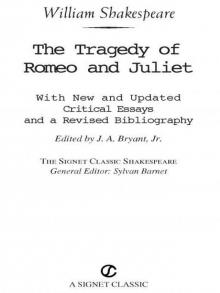 Romeo and Juliet
Romeo and Juliet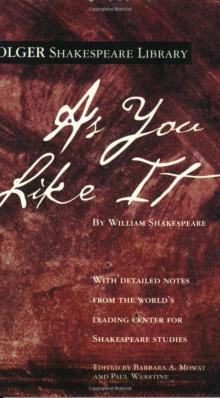 As You Like It (Folger Shakespeare Library)
As You Like It (Folger Shakespeare Library)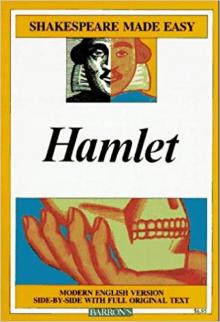 Hamlet
Hamlet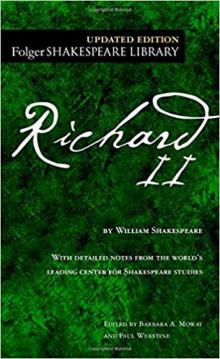 Richard II (Folger Shakespeare Library)
Richard II (Folger Shakespeare Library) Macbeth
Macbeth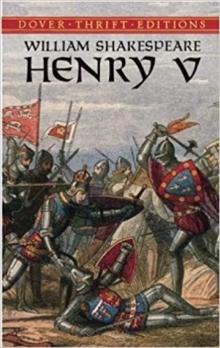 Henry V
Henry V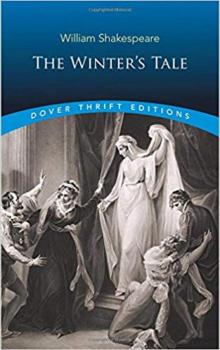 The Winter's Tale
The Winter's Tale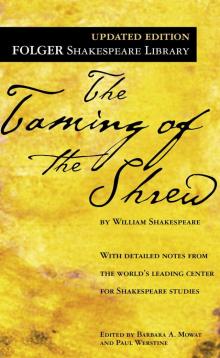 The Taming of the Shrew
The Taming of the Shrew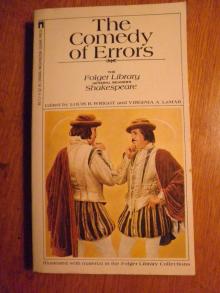 The Comedy of Errors
The Comedy of Errors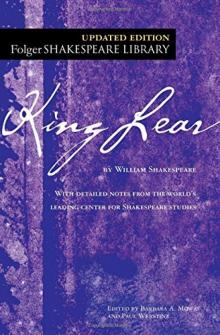 King Lear (Folger Shakespeare Library)
King Lear (Folger Shakespeare Library)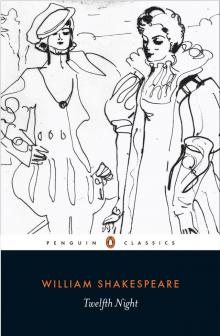 Twelfth Night
Twelfth Night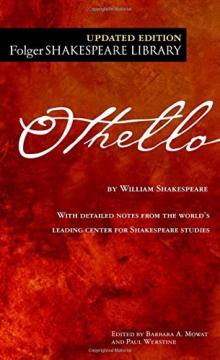 Othello
Othello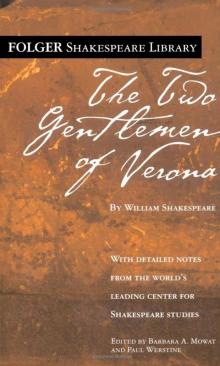 The Two Gentlemen of Verona
The Two Gentlemen of Verona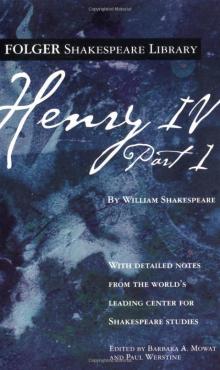 Henry IV, Part 1 (Folger Shakespeare Library)
Henry IV, Part 1 (Folger Shakespeare Library)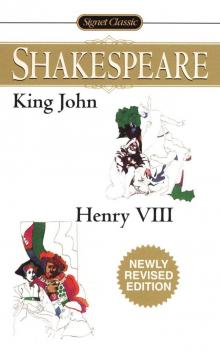 King John/Henry VIII (Signet Classics)
King John/Henry VIII (Signet Classics)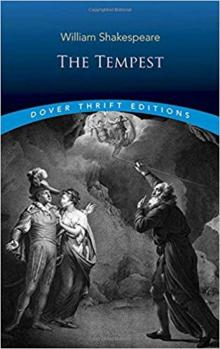 The Tempest
The Tempest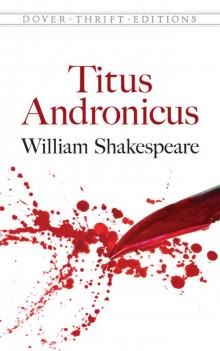 Titus Andronicus (Dover Publications)
Titus Andronicus (Dover Publications)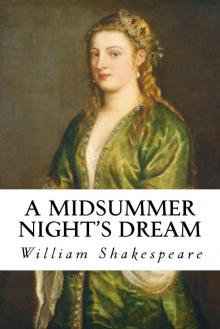 A Midsummer Night's Dream
A Midsummer Night's Dream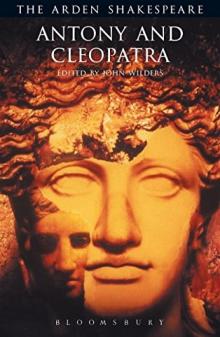 Antony and Cleopatra (Arden Shakespeare: Third Series)
Antony and Cleopatra (Arden Shakespeare: Third Series)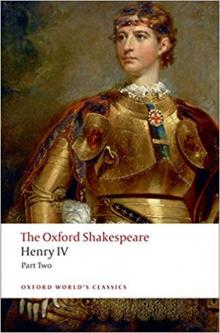 The Oxford Shakespeare: Henry IV, Part 2 (Oxford World's Classics)
The Oxford Shakespeare: Henry IV, Part 2 (Oxford World's Classics)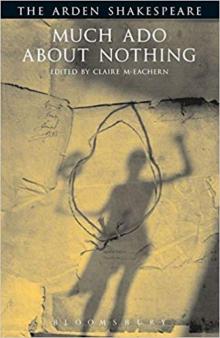 Much Ado About Nothing (Arden Shakespeare: Third Series)
Much Ado About Nothing (Arden Shakespeare: Third Series)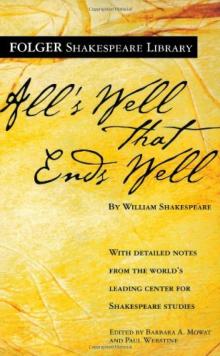 All's Well That Ends Well
All's Well That Ends Well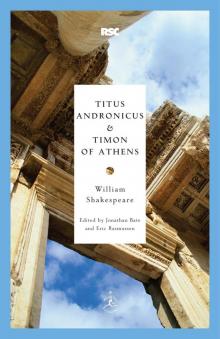 Titus Andronicus & Timon of Athens
Titus Andronicus & Timon of Athens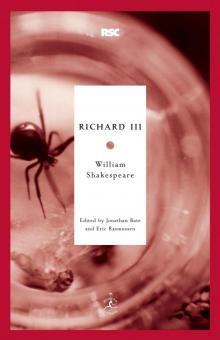 Richard III (Modern Library Classics)
Richard III (Modern Library Classics)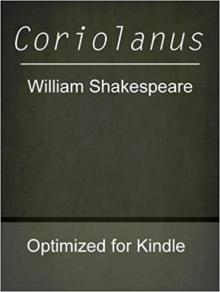 Coriolanus
Coriolanus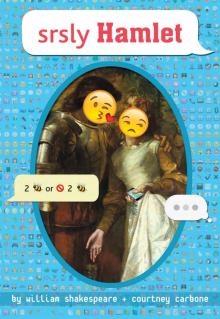 srsly Hamlet (OMG Shakespeare)
srsly Hamlet (OMG Shakespeare)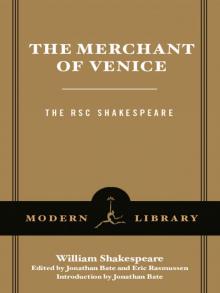 The Merchant of Venice
The Merchant of Venice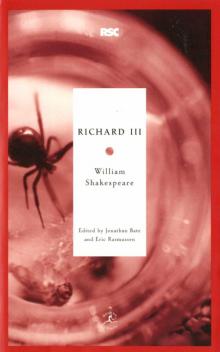 Richard III
Richard III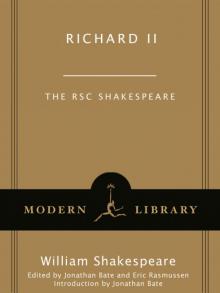 Richard II
Richard II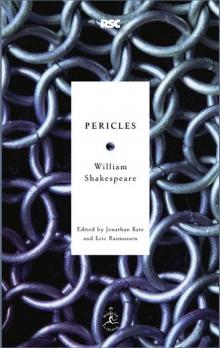 Pericles
Pericles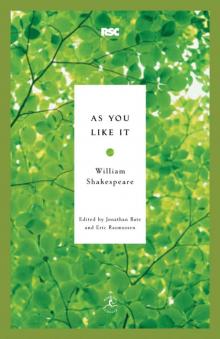 As You Like It
As You Like It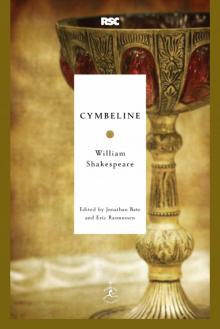 Cymbeline
Cymbeline Alls Wel that ends Well
Alls Wel that ends Well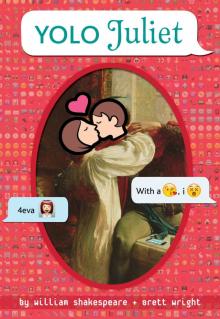 YOLO Juliet
YOLO Juliet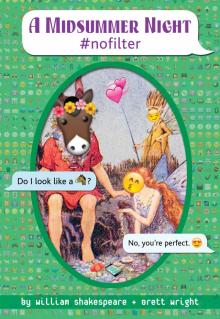 A Midsummer Night #nofilter
A Midsummer Night #nofilter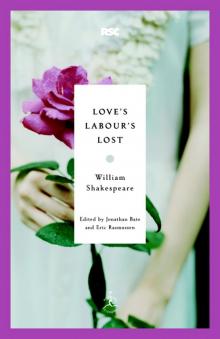 Love's Labour's Lost
Love's Labour's Lost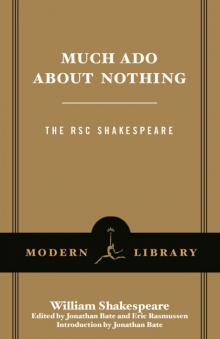 Much Ado About Nothing
Much Ado About Nothing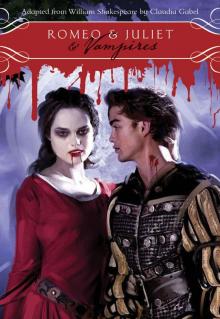 Romeo & Juliet & Vampires
Romeo & Juliet & Vampires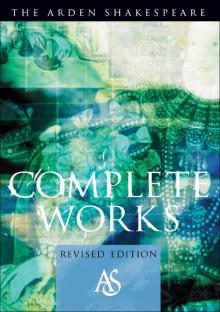 The Arden Shakespeare Complete Works
The Arden Shakespeare Complete Works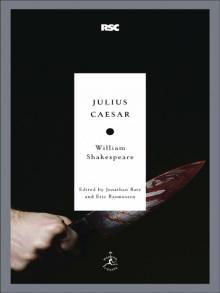 Julius Caesar
Julius Caesar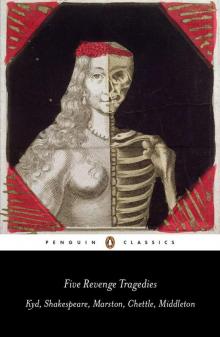 Five Revenge Tragedies: The Spanish Tragedy, Hamlet, Antonio's Revenge, The Tragedy of Hoffman, The Revenger's Tragedy (Penguin Classics)
Five Revenge Tragedies: The Spanish Tragedy, Hamlet, Antonio's Revenge, The Tragedy of Hoffman, The Revenger's Tragedy (Penguin Classics)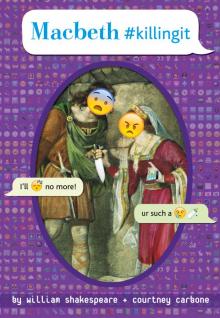 Macbeth #killingit
Macbeth #killingit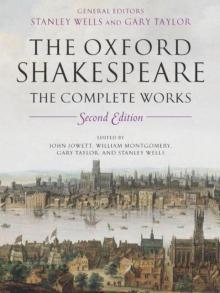 The Oxford Shakespeare: The Complete Works
The Oxford Shakespeare: The Complete Works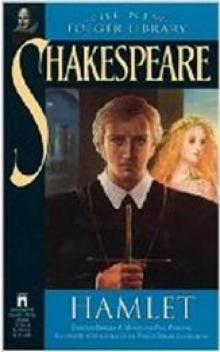 Hamlet, Prince of Denmark (Collins edition)
Hamlet, Prince of Denmark (Collins edition)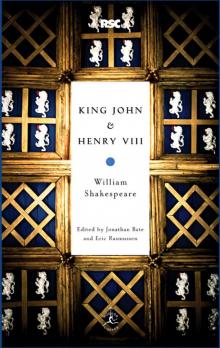 King John & Henry VIII
King John & Henry VIII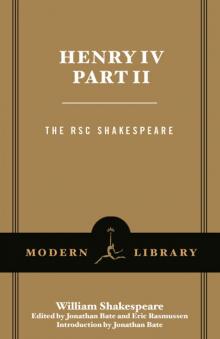 Henry IV, Part 2
Henry IV, Part 2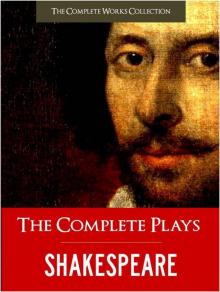 Complete Plays, The
Complete Plays, The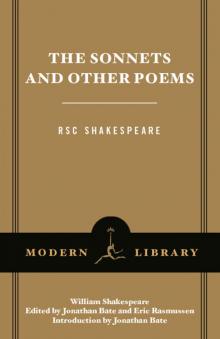 The Sonnets and Other Poems
The Sonnets and Other Poems Antony and Cleopatra
Antony and Cleopatra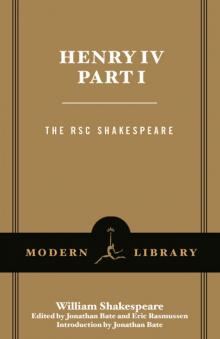 Henry IV, Part 1
Henry IV, Part 1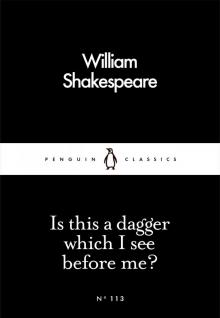 Is This a Dagger Which I See Before Me?
Is This a Dagger Which I See Before Me?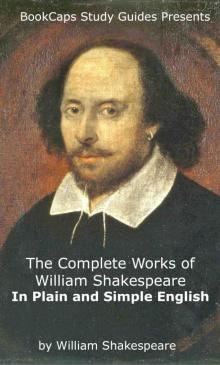 The Complete Works of William Shakespeare In Plain and Simple English (Translated)
The Complete Works of William Shakespeare In Plain and Simple English (Translated)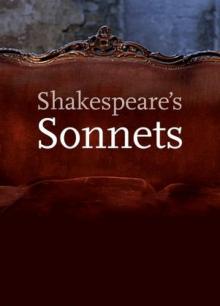 The Sonnets
The Sonnets